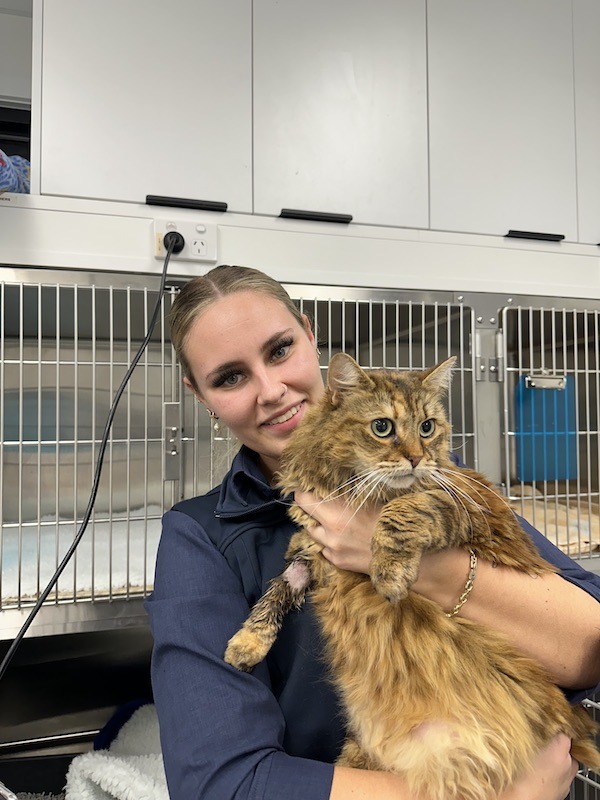Hyperthyroidism is a common condition in senior cats, especially those over the age of ten. It’s a disorder caused by an overactive thyroid gland, which produces excess thyroid hormone. This condition can have serious health implications if not managed properly. At Vets of Geelong, we’re committed to providing the best care for your feline companions, and that includes helping you understand this prevalent issue.
What is Hyperthyroidism?
The thyroid gland, located in the neck, plays a crucial role in regulating your cat’s metabolism. In cases of hyperthyroidism, the gland becomes overactive, typically due to a benign tumor, leading to an increased production of thyroid hormones. This hormone imbalance speeds up the cat’s metabolism, which can result in a range of symptoms.
Signs and Symptoms
Common symptoms of hyperthyroidism in senior cats include:
- Weight Loss: Despite an increased appetite, cats with hyperthyroidism often lose weight rapidly.
- Increased Thirst and Urination: You may notice your cat drinking more water than usual and urinating more frequently.
- Restlessness and Hyperactivity: Cats may become unusually active or restless, often showing signs of nervousness or agitation.
- Vomiting and Diarrhoea: Gastrointestinal issues are common as the body struggles to cope with the metabolic changes.
- Poor Coat Condition: The cat’s fur may become unkempt, greasy, or matted.
Diagnosis and Treatment
Diagnosing hyperthyroidism is relatively straightforward with a blood test to measure thyroid hormone levels. If your cat is diagnosed with hyperthyroidism, there are several treatment options available:
- Medication: Daily medication can help manage the condition by reducing thyroid hormone levels.
- Surgery: In some cases, the overactive thyroid gland can be surgically removed.
- Radioactive Iodine Therapy: This is considered the gold standard treatment, effectively destroying the overactive thyroid tissue with minimal side effects.
- Dietary Management: A special diet low in iodine can help control the production of thyroid hormones.
The Importance of Regular Check-ups
Regular veterinary check-ups are crucial for early detection and management of hyperthyroidism, especially as your cat ages. If left untreated, hyperthyroidism can lead to more severe health issues, including heart disease and high blood pressure.
How We Can Help
At Vets of Geelong, we understand how much your feline friend means to you. Our experienced veterinarians in Geelong are here to provide comprehensive care, from early diagnosis to treatment options tailored to your cat’s needs. We’re proud to serve the Geelong community and surrounding areas in Victoria, ensuring your pets live healthy, happy lives.
If you’ve noticed any changes in your senior cat’s behaviour or health, don’t hesitate to contact us. Early intervention is key to managing hyperthyroidism and maintaining your cat’s quality of life.
